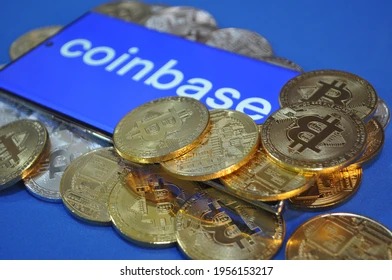While acquiring the Tether (USDT) stablecoin presents benefits like stability and versatility, it can pose challenges to those who have never invested in crypto before. This guide serves future USDT holders, offering essential insights into navigating the complexities of purchasing Tether, ensuring a seamless and informed process.
What is the USDT stablecoin?
A stablecoin is a type of cryptocurrency designed to maintain a stable value by pegging it to a reserve asset like the United States dollar. USDT is a prominent example, which is tethered to the value of $1.
The precursor to Tether, originally named “Realcoin,” was issued on the Bitcoin blockchain before its rebranding. In 2014, Tether launched on Bitcoin’s Omni Layer, subsequently expanding to support multiple protocols, including Ethereum and Tron.
Tether has since extended its reach to China, Mexico and the eurozone, issuing tokens pegged to the euro, offshore Chinese yuan, Mexican peso and gold — although these assets have smaller market caps than the U.S. dollar-pegged USDT tokens.
Investors use stablecoins to mitigate the volatility inherent in traditional cryptocurrencies, allowing for a more secure store of value and facilitating seamless trading on various platforms. Stablecoins like Tether can also act as a regulatory safeguard, providing stability tied to traditional assets and mitigating risks associated with the absence of cryptocurrency market regulation.
Tether, in particular, serves as a bridge between crypto and fiat currencies, offering a reliable medium for transactions and a haven during market fluctuations. Its value, stability and liquidity make stablecoins essential for comparatively quick, low-risk transfers and strategic investment maneuvers.
1. How to buy USDT on crypto exchanges
By following these steps, investors can navigate the process of buying USDT through a cryptocurrency exchange or a broker, making informed decisions that align with their investment goals.
The section below outlines significant steps to assist investors in selecting the right crypto exchange or broker and seamlessly placing an order, ensuring a smooth and informed process for acquiring USDT with fiat currency.
Choosing a crypto exchange
To purchase USDT, select a cryptocurrency exchange, such as Coinbase, eToro or Kraken. These platforms differ in complexity and fees, so compare multiple before committing. After choosing a platform:
- Create an account.
- Navigate to the trading section.
- Follow the steps to purchase USDT.
Investors can also buy USDT via cryptocurrency brokers by choosing a reputable cryptocurrency brokerage platform, such as Bitpanda and Exness. These brokers streamline the buying process with user-friendly interfaces, although some may charge higher fees or profit from selling traders’ data.
However, Bitpanda is presently unable to facilitate the opening of new accounts for retail customers residing in the United Kingdom and the United States. Furthermore, Exness does not provide trading services to retail clients in the U.K. and does not accept clients from several countries, including Canada, Germany and Australia.
Investors on certain exchanges can select blockchain networks for USDT purchases, including options like ERC-20 and TRC-20. To buy Tether on TRC-20 or an alternate blockchain, investors must select a compatible exchange and choose the desired USDT trading pair on the specific blockchain network.
When choosing a platform or broker to buy USDT, prioritize security, fees and user-friendly interfaces. Additionally, opt for reputable services aligned with the regulatory standards of the user’s respective country for secure USDT investment.
Crypto exchanges, for example, must adhere to legal agreements in Canada following the Canadian Securities Administrators’ February 2023 requirements. Therefore, it’s lawful to buy USDT, but it’s necessary to confirm its availability on crypto exchanges. Some platforms like Coinbase, Kraken, Crypto.com, Binance and OKX have adjusted operations, with some temporarily suspending Tether transactions and others withdrawing from the Canadian market due to regulatory changes.
Decide on a payment option
To initiate the USDT acquisition process on a crypto exchange, deposit funds via bank transfers, credit or debit cards, or supported cryptocurrencies. Consider transaction fees, processing times and personal convenience when choosing a payment option.
Simply navigate to the deposit section, choose a preferred option, and confirm the transaction to have the necessary funds to buy USDT. Consider factors like fees, processing times and convenience.
Identity verification is mandatory after creating an account and selecting a payment method. This process entails submitting personal information, such as an identity document, to comply with regulatory standards and bolster security.
Placing an order
Once an account is funded and verification is passed, it’s time to place an order. Placing an order for USDT involves navigating to the trading section.

Select the USDT trading pair, such as USD/USDT, choose between a market order or a limit order, input the desired amount of USDT, review the order details and confirm the trade. This process finalizes the purchase, and the USDT will be credited to the account.
2. How to buy USDT on a P2P platform
Investors seeking a more personalized and direct approach often use peer-to-peer (P2P) platforms to buy USDT. Unlike traditional exchanges, P2P platforms, such as OKX, Bybit and Paxful, connect buyers and sellers directly, allowing for negotiation and flexibility in transaction terms. Some prefer this method for its potential cost savings and tailored transactions.
However, being cautious is essential as P2P transactions carry inherent risks, including potential scams and disputes. To choose a reliable P2P platform, consider user reviews, platform reputation and security features.
When ready to buy USDT, choose a trustworthy seller, confirm their reputation and transaction history and agree on the payment method. Ensure the exchange rate is fair and competitive. After confirming the payment, the USDT is released from escrow to the connected wallet. Stay vigilant, follow the platform’s guidelines, and consider using platforms with escrow services to mitigate risks associated with P2P transactions.
3. How to buy USDT through a Telegram channel or bot
Purchasing USDT has extended beyond traditional channels, with Telegram offering a streamlined avenue for transactions. Various Telegram channels and bots facilitate the buying of Tether, connecting buyers with sellers directly. Users can join Telegram channels or bots to initiate a purchase, engage with sellers and negotiate terms.

This method provides a user-friendly and direct approach and, through caution, can ensure transactions occur securely. Always verify the legitimacy of the Telegram channel and the reputation of the seller before proceeding, maintaining diligence to make the buying process through Telegram a reliable option for acquiring USDT.
How to utilize DEXs to swap other cryptocurrencies for USDT
To acquire USDT, investors can also swap other cryptocurrencies for USDT on a decentralized exchange (DEX), such as PancakeSwap or Uniswap.
To utilize a DEX for swapping cryptocurrencies to USDT, start by selecting a platform that supports USDT trading pairs. Connect a cryptocurrency wallet to the DEX and deposit the cryptocurrency intended to swap for Tether.
Navigate to the trading interface, select the desired USDT trading pair, and enter the amount to swap. Confirm the transaction details and execute the trade. Since DEXs operate on blockchain networks, transactions occur directly between users, providing greater control and privacy.
Be mindful of gas (transaction fees) and ensure the wallet is adequately funded to cover transaction costs. After the swap is complete, USDT will be available in the connected wallet.
What can you do with USDT?
After acquiring USDT, investors have several options. Using USDT allows for portfolio diversification by directly purchasing other cryptocurrencies on exchanges or decentralized platforms. To ensure secure storage, choose to withdraw or transfer USDT across wallets.
To avoid the complexities of navigating cryptocurrency exchanges, consider transforming them into practical funds by purchasing gift cards from popular e-commerce shops. Conversely, cryptocurrency enthusiasts can also enjoy the option to buy USDT using gift cards from Walmart, Steam Wallet, Amazon or other retailers.
Moreover, holding accounts with specific banking and financial apps, such as Revolut and MoonPay, facilitates the seamless purchase and trading of USDT directly using fiat currencies and cryptocurrencies on their platforms.
Additionally, investors can explore earning interest on their Tether holdings through specialty online cryptocurrency savings accounts, mirroring traditional banking practices. These accounts enable users to deposit USDT and earn interest rates that often surpass those offered by conventional online banks, providing a unique opportunity for Tether holdings to grow.
How to store USDT
Before venturing into USDT investments, secure a crypto wallet, which are available in various forms. While exchange accounts are convenient for small holdings, transitioning to a more secure solution is advisable for larger amounts. Retaining funds on an exchange means relinquishing control over keys and coins.
For risk mitigation, cryptocurrency can be transferred to a cold wallet offline, which is less susceptible to hacking. Types of wallets include hardware wallets, such as Ledger, Trezor, paper wallets or noncustodial cold storage. Software wallets include Exodus and 1Trust Wallet, as well as exchange-provided wallets such as Coinbase Wallet and OKX.
Users should be mindful of potential risks when using exchange-provided wallets since they cannot have full authority over their private keys, raising issues around ownership and security.
Stay informed about market trends, regulatory changes and security updates, adapting strategies accordingly. Regularly reviewing exchange or broker security features and diversifying holdings can contribute to managing risk.
This article does not contain investment advice or recommendations. Every investment and trading move involves risk, and readers should conduct their own research when making a decision.











